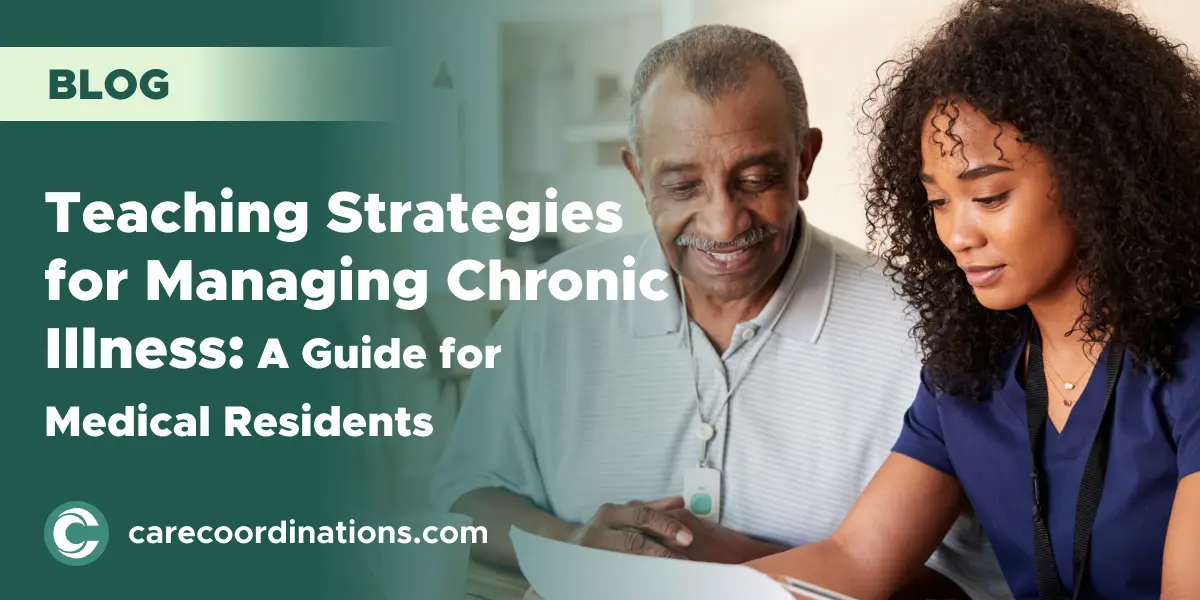The journey of managing chronic illnesses is complex and multifaceted, demanding more than just medical interventions. Patient education is at the core of this journey, a critical element that empowers patients to manage their conditions actively. As frontline healthcare providers, medical residents are uniquely positioned to impact patient lives through effective education.
This guide highlights the importance of patient education in managing chronic illnesses and outlines strategic approaches that medical residents can adopt to empower their patients.
Understanding the Complexity of Chronic Illnesses
Chronic illnesses, such as diabetes, heart disease, and arthritis, affect millions worldwide and pose unique challenges to both patients and healthcare providers. These conditions require ongoing management and care, significantly impacting patients’ lives. The diverse nature of chronic conditions, coupled with the constant evolution of medical research, adds layers of complexity to patient education. Understanding these intricacies is the first step in devising effective educational strategies.
Strategies for Effective Patient Education
Simplifying Medical Information
Medical jargon can be a significant barrier to patient understanding. It is crucial to break down complex information into digestible, understandable pieces. Techniques such as visual aids, metaphors, and hands-on demonstrations can be incredibly effective in simplifying explanations and making the information more accessible to patients.
Customizing Patient Learning Experiences
Every patient has unique learning needs and preferences. Assessing and adapting to these individual styles is critical to effective education. Offering a variety of educational materials and formats—from printed brochures to digital apps—ensures that the education plan accommodates different learning preferences, enhancing engagement and comprehension.
Ensuring Understanding and Retention
Understanding is not a one-time event but a continuous process. Repetition, reinforcement, and the teach-back method can significantly enhance information retention. It's also vital to evaluate patient understanding continuously and reinforce key concepts to ensure long-term adherence to management plans.
Promoting Patient Self-Management
Empowering patients to take an active role in their health management is essential. Providing tools and resources for effective self-care enables patients to manage their conditions more effectively, leading to better health outcomes.
Gathering Feedback and Following Up
Feedback is a powerful tool in education. Seeking patient feedback on educational interventions helps identify areas for improvement. Continuous follow-up is also crucial for reviewing and reinforcing the educational content, ensuring patients remain engaged in their care.
Utilizing Technology in Education
Digital tools and platforms offer innovative ways to enhance patient education. Leveraging these technologies can make learning more interactive and accessible, providing patients with reliable online resources for self-learning and management.
Culturally Competent Care
Cultural differences in health beliefs and practices can significantly impact patient education. Recognizing and respecting these differences and adapting educational approaches ensures that care is sensitive and effective across diverse patient populations.
Also Read: The Impact of Accountable Care Solutions on Patient Satisfaction and Outcomes
Collaborative Approaches to Patient Education
A multidisciplinary team approach to patient education ensures consistency and comprehensiveness in the information provided. Sharing knowledge and resources among healthcare providers enhances education, ensuring that patients receive a unified message about their care.
Overcoming Barriers to Effective Patient Education
Several barriers can hinder effective patient education, including low health literacy, time constraints, and misinformation. Identifying and addressing these obstacles is crucial for engaging patients and ensuring they have the necessary tools and knowledge to manage their conditions.
Emphasizing Continuous Improvement
The field of chronic illness management is ever-evolving. For medical residents, staying updated with the latest research and advancements is crucial. Encouraging ongoing learning and development in patient education techniques ensures that residents can provide the most effective and current care.
Empower Your Practice: Master Chronic Illness Management Today!
Patient education plays a pivotal role in the management of chronic illnesses. By embracing and excelling as educators, medical residents can significantly impact their patients’ ability to manage their conditions effectively.
This guide, presented by the Care Coordination Platform, underscores the critical importance of patient education and provides a roadmap for medical residents to empower their patients through informed, compassionate, and practical education.
Patients’ long-term health outcomes depend significantly on the quality of education they receive, highlighting the profound impact that medical residents can have on their journey toward better health.


